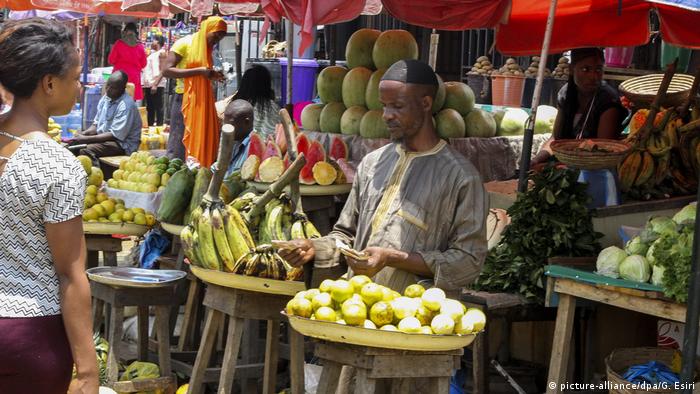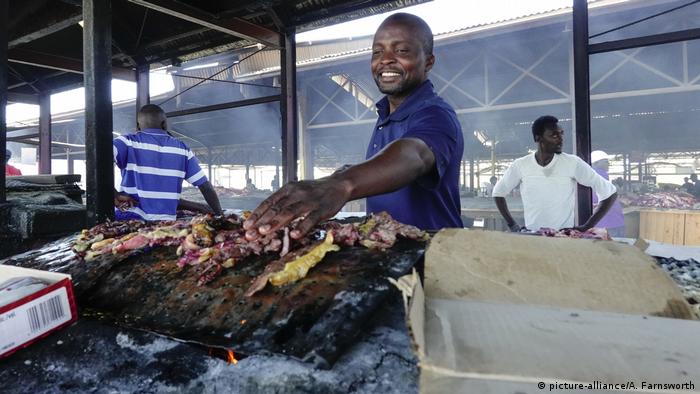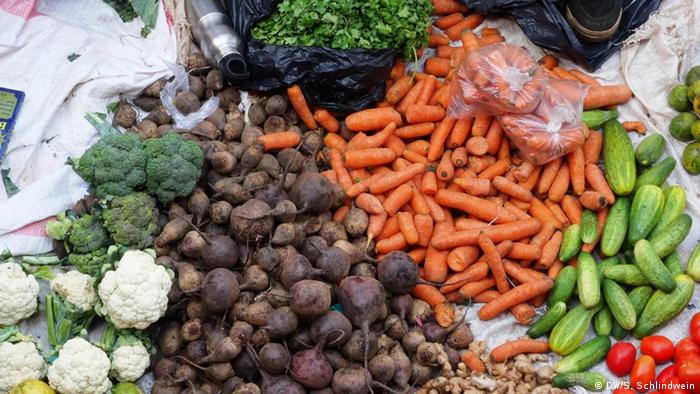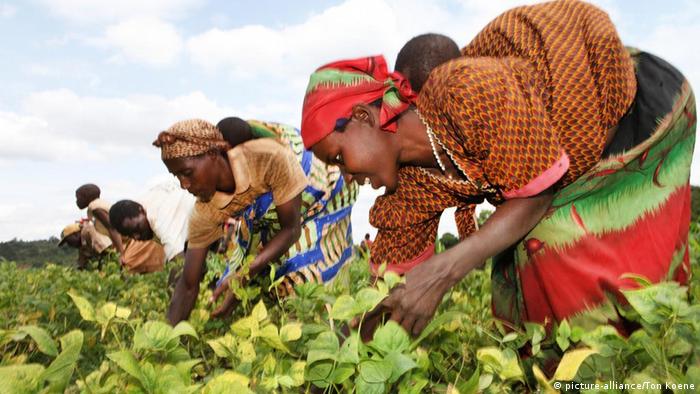Spoiled food cause in Africa huge health and economic damage. While laws ensure safe products for export, needs to be improved consumer protection in African countries.

Small flies are markets everywhere. They buzz around, put on food. You are not only a nuisance, but also dangerous. Because flying disease can cause transfer of pathogens such as Salmonella or E. coli and gastro-intestinal diseases in humans. At the popular food stalls in Uganda, where raw and cooked pork meat sold, has found the International Livestock Research Institute, for example, in every third piece of meat Salmonella.
Food-related diseases, caused by bacteria, parasites, toxins, or improper storage of the food, in many African countries is a Problem. Over 91 million people fall ill each year from food infections and about a total of 137,000 people die of the consequences, estimates the world health organization (WHO). Nowhere else in the world so many people suffer from food infections, such as in Africa.
Safe food for Export
But instead of food to address security in their own country, have put African governments in the past, your focus on the compliance of international food standards for export goods. They wanted to boost trade and their economy. Also, aid organizations have so far financed more projects, the export market came, according to a recently published report by the Global Food Safety Partnership, an Initiative of the world Bank.

Especially meat and fish, unrefrigerated and stored, it can quickly become a health risk
“These are legitimate, valuable investments. But now, there is a major health problem in Africa,” said Michael Taylor, Co-author of the report, compared to the DW. Because spoiled food can not stomach-intestinal complaints, but also long-term health effects. The poison Aflatoxin, for example, which may be caused by mold fungi in Corn, peanuts and other staple foods, is a carcinogen and triggers in children with developmental disorders and liver damage.
The chronic exposure to aflatoxins and other food-related diseases also cause economic damage. The world Bank estimates that the African continent is characterized 14.6 billion euros (16.7 billion dollars) in lost productivity. Food-borne illnesses cost the country as much as HIV/Aids, Malaria or tuberculosis.
Food security in Africa is important
Meanwhile, African governments and development organisations are aware of how important the topic is. Food safety has become one of the new pan-African issues, says Kefilwe Moalosi of NEPAD, development organization of African Union. As an example, she cites the partnership for the control of Aflatoxins in Africa (PACA), which was founded in 2014 by the African Union. PACA helps governments to regulate their food markets, explains to small farmers, how to store fresh products in the safest and invests in technologies and laboratories to measure the content of Aflatoxin and control.

70 percent of all food sold on markets or at the roadside
Regional economic markets, such as COMESA for Eastern and southern Africa are working on uniform Standards for food. And in mid-February, government representatives will meet for the first African conference for safe food. “All this shows that Africa takes over here and tried to make the topic of food safety issues,” said Moalosi compared to the DW.
Consumers need to be informed
However, experts warn that the efforts are far from sufficient. So far, measures have been taken, especially if the crisis is already here, says Abebe Haile Gabriel, representative of the UN food and agriculture organization (FAO) in Ghana. “Only if there is a Problem in respect of pollution or food safety, is known, to try the relevant actors, to respond to the media, the government and the consumers,” he told DW.
Gabriel wants a “proactive, strategic, and inclusive” approach, especially the consumer. It is with this requirement, not alone. Lystra Antoine, Chairman of the Board of the Global Food Safety Partnership, wants to educate consumers about the risks so you can claim your right to safe food.
More: awareness of food safety grows
“If consumers are informed and educated, you can make better decisions about where you buy your food, how you prepare it, how to store it,” said Antoine of the DW. If consumers make claims, would have to inform service provider. Thus, food safety would not be improved only by legislation but also by market incentives, explains Antoine.
Success stories
The big challenge is to reach the consumer and the seller. Because in Africa, 70 percent of all food sold on markets or at the roadside. Dairy products, meat and fish are rarely cooled, the risk is to be sick. Antoine wants on the markets of the Poster with the relevant information, be suspended, and that campaigns are launched via Social Media or SMS. How, exactly, the look will be different from country to country, depending on what appeals to people at the most.

Small-scale farmers produce the bulk of food consumed in Africa
Solutions need not be expensive or complicated, experts say. In Uganda’s snacks, where every third piece of meat with Salmonella was contaminated, the owner nets about your Goods and the risk for contamination is halved, observed researchers from the International Livestock Research Institute. In Kenya, where much of the milk from smallholder farmers is sold, has led to a change in the law in 2004 that they were trained in hygienic milk production and then licensed. They could offer safer products and also increase your income.
“We have seen some success stories, so we know that you can drive food security on the spot”, said Antoine of the Global Food Safety Partnership. “What we now want to see greater investment in such projects are to be expanded and the lives of Africans.” The experts agree that it would take a while to improve food security in sub-Saharan Africa. But governments and development organizations are on the right path. You would have recognized the importance of safer food for their population and economic growth.